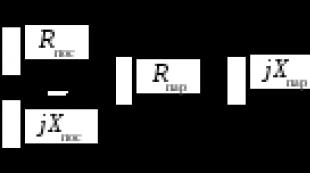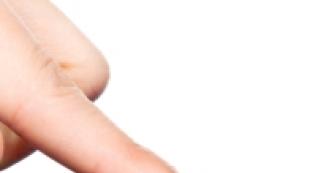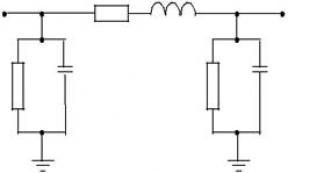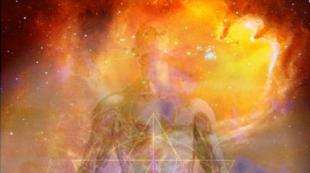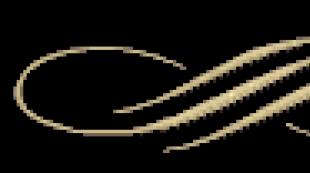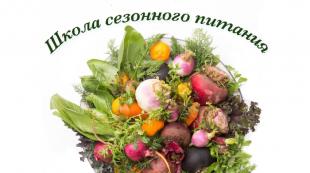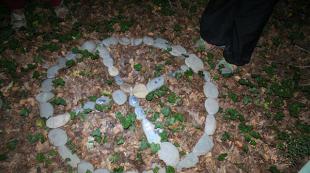Dmitry Alekseevich Komar. How Dmitry Komar died There was no resentment against the military
Today we are celebrating a sad anniversary: exactly 20 years ago, on Central Television, an announcer read out an appeal from the State Emergency Committee…
The events of those August days ended as unexpectedly as they began. Their consequences are now called historical. Every time in August, we also remember that, unfortunately, it was not possible to stop the coup without casualties ...
When, on the orders of the putschists, columns of military equipment appeared on the streets of Moscow, thousands of people took to the streets. On the night of August 21, tanks and infantry fighting vehicles appeared at the White House. The defenders of a barely nascent democracy decided that the military was going to storm. One of the young men jumped onto the BMP with the number 536 and began to pull a tarpaulin over it to block the crew's view. Two more men tried to help him, but the tarpaulin could not be secured. The gunner of the machine began to rotate the tower. All three had to jump off the armor.
However, the driver still lost visibility: viewing devices crashed. The blinded car rushed about in the narrow space between the tunnel and the barricades. The BMP hit the tunnel column, while the door of one of the landing compartments swung open. The young man again caught up with the car, tried to jump into the open compartment. Just at that moment the car reversed sharply. Unable to keep his balance, the guy fell out of the hatch, hitting his head on the asphalt. Death came instantly.
The deceased was accompanied by documents that made it possible to quickly establish his identity. This was Dmitry Alekseevich Komar 1968 year of birth. From the entry in the military ID it followed that he was a participant in the war in Afghanistan.
A few minutes after the death of Komar on the streets of Moscow, two more young defenders of the White House gave their lives for freedom and democracy: Vladimir Usov and Ilya Krichevsky.
Shortly after these terrible events, I happened to meet with Komar's parents - with his father Alexei Alekseevich and mother Lyubov Akhtyamovna. The fact is that not only his father, but also his grandfather and great-grandfather are our countrymen from Engels. Dima's mother graduated from the Engels Cooperative Technical School, and her father graduated from the Engels Military Technical School (later it was called the Higher Anti-Aircraft Missile Command School). Aleksey Alekseevich devoted more than 25 years to military service. For many years he served in a small town near Moscow in air defense units. He is now a major in the reserve. Dmitry himself, after demobilization, worked as a carpenter-repairman at a furniture factory in the city of Istra near Moscow.
Dima's parents allowed me to get acquainted with their son's documents, with his photographs, letters, awards. From them it was possible to learn that Dmitry fought in Afghanistan for almost two years. He participated in many military operations, was wounded (which, as it turned out, he deliberately did not write to his parents about), was awarded the medals "For Military Merit", "70 Years of the USSR Armed Forces", "To the Warrior-Internationalist from the grateful Afghan people." And the Minister of Defense of the USSR even awarded Dima with a valuable gift.
But he became a Hero of the Soviet Union in Moscow, defending the prosperous future of not someone else's, but already his own Motherland.
“For courage and civic prowess shown in the defense of democracy and the constitutional order of the USSR, to award the title of Hero of the Soviet Union posthumously:
Komar Dmitry Alekseevich,
Usov Vladimir Alexandrovich
Krichevsky Ilya Maratovich.
President of the USSR M. Gorbachev»
These were the last Heroes of the Soviet Union ...
Caterpillars to the heart
They became the main symbol of August 1991. Some considered them the last Heroes of the Soviet Union, others - the first Heroes of Russia.
Dmitry Komar, Vladimir Usov and Ilya Krichevsky died 25 years ago, on the night of August 21, 1991, during the August coup.
At the entrance to the tunnel under Kalinin Avenue (now Novy Arbat) on the Garden Ring, they tried to stop a convoy of armored vehicles from the Taman division, which was following the instructions of the military commandant of Moscow, appointed by the State Emergency Committee.
On August 24, 1991, the whole country buried them. A funeral rally was held, the broadcasts were on all central channels. Years later, the anniversary of the August putsch is remembered without any pathos and officialdom. Moreover, there are more and more supporters of the State Emergency Committee, and there are even calls to erect a monument to the “putschists”.
On the eve of the round date, the MK special correspondent found out how the families of the “defenders of democracy” live and how they remember their loved ones.
By order of Defense Minister Yazov, troops and special forces of the KGB were sent to Moscow.
"All the son's awards are gone"
Dmitry Komar was only 22 years old.
25 years have passed since the death of my son, but for me everything seemed to be yesterday, - says Lyubov Komar. - Dima was my firstborn. Of the three children, he was the closest to me. My husband is a military man, he disappeared for days in the service, and about all everyday affairs, I consulted with Dima. I remember when I became pregnant with my third child, I asked not my husband, but Dima: “Do you want a brother or sister?” He says: "Do you want?" I answered: “I want. Will you help?" Dimka broke into a smile: "I'll help!" He then went on dates with the girls, pushing the stroller with Alyosha with one hand, and firmly holding Tanya's hand with the other. With the two of them, he ran to football. He became both a father and a nanny to them.
Dima Komar dreamed of becoming a pilot. I went to the airfield in Chekhov to jump with a parachute. He passed three medical examinations, but at the last stage he was diagnosed with a violation in the conduction system of the heart - a thickening of the bundle of His.
When Dima was little, we lived in a military town near Ruza in a Finnish house, which was built by captured Germans. While the stove was being heated, one had to wear fur coats. In three years, Dima had been ill with pneumonia seven times, which led to a complication in the heart.
Dmitry did not pay attention to the illness, continued to train, and, surprisingly, he was recognized as fit for service in the Airborne Forces. In 1986, he went to study in Lithuania, in Gaižiūnai.
I went to his graduation from the training center. I learned through my channels that one company was going to Tajikistan, the other to Czechoslovakia. And the son's company went to Afghanistan, where a civil war was then going on. I tried to persuade my son to transfer, he said as he cut off: "I will not betray the guys."
In Afghanistan, they escorted convoys with fuel trucks. They were practically living targets. Dushmans shot them from an ambush at close range. The son was twice shell-shocked, had been ill with jaundice. Of the 120 people of their company, no more than 20 survived.
Dima Komar brought home three medals, including "For military merit", gratitude from the government of Afghanistan. He got a job as a forklift driver. And on August 19, 1991, the country saw “Swan Lake” on television and recognized the abbreviation GKChP. The self-proclaimed State Committee for the State of Emergency, opposing perestroika and ongoing reforms, attempted a coup d'état. Troops and special forces of the KGB were sent to Moscow.
We lived then in a military camp in Istra. Rallies and barricades were shown on TV. Dima was far from politics, I remember, he told me: “I have nothing to do there. I fought in Afghanistan for the rest of my life.” But on Tuesday, leaving work, the son heard how Russian Vice President General Alexander Rutskoi called on all the “Afghan” soldiers to defend the “White House”. He appealed to their honor, mind and heart. And the “Afghans” are a special people, in fact, a brotherhood, ready to go through fire and water for each other. They got up and followed Rutskoi as if they were going to war. Then Gena Veretilny, who himself was wounded, told me how events unfolded that terrible night.
Around midnight, the military in armored vehicles advanced towards the White House, the seat of the new Russian government. (According to investigators, the curfew column was moving towards Smolenskaya Square in the direction from the White House.) Moved trolleybuses and trucks blocked their path near the tunnel under Kalininsky Prospekt. Dmitry, who served in the Airborne Forces, jumped onto one of the BMPs with tail number 536 and tried to cover the driver's viewing slot with a tarpaulin so as not to let the car go further.

Dmitry Komar.
The driver began to make sharp maneuvers. He hit the side of the column, the landing hatch opened. Dima poked his head in there, and at that time the officer shot at him. He wounded his son, Dima was still alive, caught his feet on the hatch. The car pulled back, dragging the helpless body of his son behind him. Volodya Usov rushed to his aid. The driver jerked the car, the BMP ran over both Volodya and Dima.
Ilya Krichevsky, who was standing nearby, began to shout: “What are you, s…, doing? You've already killed two." Then the officer shot him right in the forehead. This happened within 20 minutes, from 0.20 to 0.40. Three dead. At first, it was written in the documents that the crews were given blank cartridges. Then they began to say that the guys died from unaimed warning shots up through the hatch and ricochet ...
Lyubov Komar could not realize for a long time that her son was not alive. There was shock.
I came to work, we had to go on a business trip to Gorky. But the car suddenly broke down, as if some force was trying to stop me. Here the head of the personnel department Nadya comes running with an upturned face. I ask: "Mom?" She shakes her head. I could not think that trouble happened to my son. He called me the day before from Moscow, said that he would stay with a classmate. I was calm for him. Then they called me to the phone, a male voice said: "Your son is dead." I answered: "How dead?" At the other end, they answered irritably: “That's it. Lying on the floor." It was an employee of the Istra furniture factory, where Dima used to work. Then I talked to this man, he did not raise his eyes to me.
After the terrible news, I couldn't cry. They brought me home, I calmly told my family about what had happened ... But I myself did not fully realize that my eldest son was no more. Then I started shaking and pounding...
They wanted to bury Dmitry Komar, Vladimir Usov and Ilya Krichevsky on Red Square.
I said: “No way! Only in the cemetery. They decided: since the guys died together, then they should lie under the same slab. They found rest in the Vagankovsky cemetery. I never saw Volodya Usov, he was buried in a closed coffin. An infantry fighting vehicle also passed through Dima. Specialists came from the morgue, took photographs of their son in order to "blind" (restore) his face. Dima was buried in a wig, it was not his hair.
Every three hours, Lyubov Akhtyamovna called an ambulance, gave one injection after another.
They pricked so that inflammation, infiltration began. On the 9th day after the death of my son, I had to have an operation, they pumped out 750 grams of pus. But the physical pain somewhat muffled the mental anguish. When Dima died, only Tanya and Alyosha kept me in this world.
Lyubov Komar admits that after the death of her son, her perception of reality has changed.
For my birthday, I was given a beautiful wall clock. After Dima passed away, I could not sleep when they were working. I felt like they were ticking very loudly, their sound echoing in my head. Although I used to sleep at the same time and did not notice their progress. Now I have this watch unwound, decorating the interior.
The President, by his decree, posthumously awarded the "defenders of the White House" the title of Hero of the Soviet Union with the award of the Order of Lenin and the Gold Star medal. Their families received a gift from VAZ - a Zhiguli.
The Moscow Government allocated a 3-room apartment to the family of Dmitry Komar in a prestigious district of the capital. Parents began to receive a solid pension for their dead son.
- No resentment against the military left?
They were following orders. The "putschists" may have had good intentions, they sincerely wanted to improve life in the country. But they acted recklessly. Their biggest mistake was that they brought armored vehicles into the capital. The army should not be the gendarme of its people, it should protect it.
The father of Dima Komar, Alexei Alekseevich, being a military man, was very upset by the death of his son. Personal tragedy superimposed on official troubles.
The husband served in the air defense forces, defended the skies of Moscow, was the chief of staff. And during his duty on Vasilyevsky Spusk, a German amateur pilot Matthias Rust landed on a light aircraft. And then the husband could not get through to any of the generals, who was in the bathhouse, who was fishing. They made him guilty. At 47, he was retired. The husband believed that he was unfairly dismissed from the army. Relaxed. Never worked anywhere else.
Of all the awards and award documents of her son, Lyubov Komar only had a certificate for the "Gold Star" and an order.
All Dimina's awards are gone. On May 9, my husband went to show them to his friends, and he was robbed, - says Lyubov Akhtyamovna.
Visiting the Vagankovsky cemetery, at the grave of his son, Lyubov Komar recalls what Dima dreamed about.
He had a girlfriend Masha, he was going to get married. I wanted them to have their own apartment. Mashenka and I are friends to this day, we meet with her husband and children. Recently, they recalled how Dima, resting in Lazarevsky, saved people after a powerful mudflow. He gave the victims both his number at the camp site and his cards for food. He was hungry and slept on the floor. He has always defended the underprivileged. I myself am like that. My grandfather, a full cavalier of the St. George Cross, said to me: "Don't pass by injustice." And Dima was a copy of his grandfather. He was curly, and Dima, the only one of three children, had wavy hair and the character of grandfathers.
The August putsch happened 25 years ago. Many things are seen differently now. And more and more often you can hear the question: “What did the “defenders of the White House” die for?
The guys did not die in vain then, - says Lyubov Komar. - Someone had to stop these tanks, this is crazy. Their death sobered many. When blood was shed, the Minister of Defense, Marshal Yazov, ordered the troops to stand still, and in the morning their withdrawal began. Then I heard: “How happy we are for our newfound freedom, now we say whatever we want, wherever we want, we go there.” I thought: “Do I need this?” We adopted not the best from the West. Take the same attitude of children towards their parents or love for books ...
Father Dmitry Komar is no longer alive. The ashes of Alexei Alekseevich were placed in a columbarium at the Vagankovsky cemetery, next to the grave of his son. Lyubov Akhtyamovna is still active and active. Being a merchandiser by profession, having retired, she works as a housekeeper in a fitness center. Her granddaughter Dasha is growing up.
Saying goodbye, she says:
They told me: let Dima go. I let him go. But he is still present, I dream. The same dream has been repeated twice. Dima brings a horse, I put Tanya, Alyosha on it, the horse lengthens, more children appear on it. Dima tells me in a dream: "Mom, you lead her, I will protect you." And he starts shooting from a machine gun. I shout to him: “Only you save yourself, save yourself ...” He reassures: “Go, mom, everything will be fine.” He won't let me go. I know that Dima is my guardian angel. I constantly feel his presence behind my left shoulder.
“For my son, the main thing was not democracy and Yeltsin, but defenseless people”
Vladimir Usov was 37. During the August coup, he worked as an economist at the Ikom joint venture.
The barricades ended up next to their office, which was located in the Belgrade Hotel, and, of course, the son could not stay away, - says Vladimir's mother Sofya Petrovna Usova. - The time was vague. Knowing Volodino's heightened sense of justice, his colleagues tried to stop him, saying: "Don't go there, there are tanks, soldiers." The son was adamant: “There are women and children. Who will protect them?" For him, the main thing was not democracy and Yeltsin, but defenseless people.
Volodya was a kind, even super-kind person. He climbed onto this BMP to pull the young man out. Apparently, it seemed to the son that the guy was injured, he wanted to unhook him from the heavy car.
Exactly at the moment when Vladimir died, Sofya Petrovna woke up.
There was such a rumble in my head, as if tanks were moving a meter away from me. Although I could not hear the armored vehicles. We lived then in the VDNH area. The night before, I had a prophetic dream. My husband and I stood at the window, and from the sea the waves carried black crosses at us. One of them touched the corner of our house. I then told my husband: “Wow, and we were hooked ...”
Vladimir promised to call Sofia Petrovna at 9 am. The phone was silent.
I turned on the radio, and they were just talking about the events of last night, about the three dead defenders of the White House. For some reason, I immediately realized that our Volodya was among them. Immediately called him at work, the girl picked up the phone. I say: "Where is Volodya?" She is silent. My worst fears were confirmed...

Vladimir Usov.
Vladimir was the only son of Sofya Petrovna and Admiral Alexander Arsentyevich Usov. He served in the navy, in coastal units in the Kaliningrad region and in Belarus. As a father, he did not become a military man. According to Sofya Petrovna, again through her modesty and kindness.
The caterpillars that crushed the son also walked over his father. Admiral Usov retired, was very ill, died in 2010.
Sofya Petrovna now spends most of her time at the dacha, which her husband and son built with their own hands. Her granddaughters and great granddaughters often visit her. There are especially happy days in her life. When the son dreams
Recently, in a dream, he says to me: "Mom, I'm alive!" I wake up in tears of happiness. And on the bedside table there is a portrait in a black frame ... But I believe that Volodya is nearby, our soul is alive.
On all memorable dates and major church holidays, Sofya Petrovna comes to her son's grave at the Vagankovsky cemetery. She doesn't like to talk about politics. Life in the Soviet Union does not embellish.
Life then was hard and scarce. The shops were empty. I would like to believe that Dima, Volodya and Ilya turned the tide of events in August 1991, - says Sofya Petrovna. - If the guys had not stopped the armored vehicles, there could have been a lot of victims.
Sofia Petrovna sent many of Volodya's belongings to Magadan. The school where he studied created a museum in his memory.
My son's books remain. I am now re-reading the fantasy that he loved so much with Volodya's eyes.
“For two days they were looking for Ilyusha in all hospitals”
About the architect Ilya Krichevsky, his sister Marina says:
My brother was on the barricades that night, of course, not by accident. In general, he was a caring person, as they say, a bare nerve. This became clear when we began to study his poems. Ilyusha was 28 in 1991, I was 26. I was already married, but we all lived together in a 3-room apartment, in a five-story building. My brother recently returned from the army. He did military service after graduating from the institute, a fairly adult man. First there was tank training in Shali, then he served in the Cossack camps near Novocherkassk. Judging by his few stories and letters, at first he had a hard time in the army. Because a Muscovite, besides a Jew. Then the brother was already involved, began to write poems for birthdays for the girls of his colleagues. Won respect.
Ilya Krichevsky was fascinated by poetry and theatrical studio. He painted beautifully. Upon returning from the army, I read Solzhenitsyn's Gulag Archipelago and Shalamov's stories. When the August putsch happened, having learned from the news what was happening, he got dressed and left the house.

Ilya Krichevsky.
Then it turned out that Ilya Krichevsky was called to the barricades by a colleague from Zhukovsky. They were tankers in the army, and then it turned out that the “putschists” had moved armored vehicles to the capital.
The army comrade then got lost in the crowd, and Ilyusha went to the tanks, to the very front line. He was there without papers. But when the ambulance had already arrived, a colleague called Ilyushin's last name. And the next morning, on Echo of Moscow, my classmate heard the name Krichevsky. We all studied together at the architectural institute. Calling us at home, she carefully asked: “Is Ilyusha at home? ..” Then we searched for him in all hospitals for two days. We were not very kindly answered. He died on Tuesday, and only on Thursday did we find his brother in the morgue.
Then there were the funeral and the trial. A criminal case was initiated against the military. The investigation lasted 4 months. The crew of BMP No. 536 was acquitted. They had orders to prevent the seizure of weapons, ammunition and military equipment. And they allegedly shot only upwards, for self-defense.
Only recently I came across Ilyushin's death certificate. It says bullet wound. During the court hearings, it was established that an order had been given and the person had defended himself. But the bullet was clearly not crazy. We then looked at many frames of the chronicle of that night, where Ilyushin's voice is clearly audible. He shouted: "What are you doing, you are shooting at people." The officer shot at the one who was indignant, to the voice ... And by that time two other guys had already died.
Ilyusha's mother, Inessa Naumovna, died in 2002, 11 years after her son's death.
Doctors said that her heart was all in scars, she suffered several microinfarcts, - says Marina. - They were very close to my brother. Ilyusha and outwardly looked like his mother. It was to her at night that he read his poems.
Ilya's father, Marat Efimovich, kept his son's room in its original form. His son's belongings hang in the closet, Ilya's notebooks are on the shelves.
25 years have passed, but for us it is still very painful. Even when my daughters were growing up and events related to the State Emergency Committee were taking place in history lessons, I was scared from the realization that Ilyusha had gone down in history.
- How do you perceive those events in relation to our reality?
This is a very painful question, because everything that is happening now is very ambiguous, difficult, insulting, sad, both deserved and undeserved ... Now I meet people who I respect very much, and when asked which of the events in their lives they can call the most bright, they say, "Three days in August." It touches me to the core every time.
Komar Dmitry Alekseevich - driver of a forklift of the production specialized association "Interior", Moscow.
Born on November 6, 1968 in the village of Nesterovo, Ruza District, Moscow Region, in the family of a military man. Russian. In 1986 he graduated from the Old Russian secondary school. Lived in the city of Istra, Moscow region. He worked as a locksmith at the Istra furniture factory. In the Soviet Army in 1986-1989. Since May 1987, he served in the Republic of Afghanistan in the airborne troops, Sgt. After being transferred to the reserve and returning to his homeland, he worked as a forklift driver in PSO "Interior" in Moscow.
On August 19-21, 1991, during the period of activity in Moscow of the State Committee for the State of Emergency in the USSR (GKChP), D. A. Komar was among the citizens who protested against the entry of troops into Moscow and demanded democratic changes in the country. He died on the night of August 20-21, 1991 in the area of an underground tunnel near Smolenskaya Square, where eight infantry fighting vehicles (BMPs) of the Taman motorized rifle division were blocked at the intersection of Chaikovsky and Novy Arbat streets.
Having jumped onto the BMP (side number 536), moving towards Smolenskaya Square, D. A. Komar tried to throw a tarpaulin over the viewing slot in order to “dazzle” the crew. The gunner of the BMP began to rotate its turret, intending to throw the attacker off the armor, but the driver managed to do this: as a result of a sharp maneuver, Dmitry ended up on the pavement. But he got up, caught up with the BMP and jumped into the landing hatch, which swung open from hitting the column. The driver, under the roar of warning shots, jerked the car so much that Mosquito was thrown out of it. At the same time, he caught the edge of his clothes on the cover of the open landing hatch. The BMP rolled back, dragging the helpless body of a 23-year-old boy along the asphalt...
By the Decree of the President of the USSR of August 24, 1991, for the courage and civic prowess shown in the defense of democracy and the constitutional order of the USSR, Komar Dmitry Alekseevich awarded the title of Hero of the Soviet Union (posthumously).
He was buried in Moscow at the Vagankovsky cemetery, where a monument was erected on his grave (plot 25). A memorial sign in honor of the Hero is installed above the underground tunnel at the intersection of the Garden Ring with Novy Arbat Street in Moscow. A memorial plaque was installed in the building of the old Russian school named after D. A. Komar.
He was awarded the Order of Lenin (08/24/1991, posthumously), medals, including "For Military Merit", "Defender of Free Russia" (08/19/1992, No. 1, posthumously), a foreign medal. He is the youngest (by date of birth) Hero of the Soviet Union.
"... All three of the dead, by Gorbachev's Decree, will be awarded the title of Hero of the already, in fact, the Soviet Union that did not exist by that time. The last heroes of a great country ...
They will be buried with state honors at the Vagankovsky cemetery, and the newspapers will stubbornly avoid such details that the dead attacked the soldiers first, that the equipment did not go to the White House, but from it. But a criminal case will be opened against the crew of the BMP No. 536. To the credit of the court and judge V. Fokina, despite the pressure, the desire to give the case a political coloring, the soldiers are found not guilty: the crew was attacked, the weapon was used legally, in self-defense.
Thus, another mockery was created at the country, at its highest insignia - the title of Heroes of the Soviet Union.
Eternal memory to them."
By the way, the servicemen were seriously injured. But the media was practically silent about this, who felt sorry for some warriors.
V.A. says somewhat differently. Kryuchkov: “... In the tunnel under Kalininsky Prospekt, several armored personnel carriers were blocked by trolleybuses, trucks, and from both sides. The cars caught fire, excited, and some obviously drunk thugs climbed on them. Attempts by the crews to reason with people were unsuccessful. As a result of the provocation, three of the attackers died. "
Was it really a provocation? Why not. We've already said that the blood was needed. And the general public was never informed, even the one who gave the order to block the armored vehicles. And how they acted and even more so is not known exactly. By the way, according to General A.I. Lebed, a 19-year-old boy sergeant prevented an explosion of a car with ammunition, as a result of which not three, but 1333 people could have died, who paid with their lives for thoughtlessness, stupidity and unprovoked aggressiveness.
But the criminal case was only on the possible fact of the murder of three young people. "The Moscow city prosecutor's office, which conducted an investigation into this fact, stopped the criminal case, considering that there was no corpus delicti either on the part of the attackers or on the part of the servicemen who were attacked."
The same Lebed considered it necessary to note: “Thank you that there were then sensible people who stopped the arbitrariness against innocent soldiers. And we should pay tribute to the courage of the female investigator who later conducted this case. but she managed to rise above the violent situation and, objectively, impartially, understand what happened, justify the soldiers who became victims of tragic circumstances. True, Kryuchkov called this a hush up of the case.
But that's later. And initially a hysterical memorial service for the innocent victims, solemnly blasphemous awarding them all with the honorary title of Hero of the Soviet Union. For what? After all, it turned out that no one was to blame. If there is no crime, then how can there be a hero who stops it? It turns out, maybe, if someone wants to powerfully guide the course of events.
Alexander Ivanovich Lebed wrote: “It is a human pity for the dead people. Young people full of strength and health left life untimely. The kingdom of heaven and rest in peace to them. But the fact that they became the last Heroes of the Soviet Union in the history of the country, having accepted this title posthumously from the hands of people who were preparing to liquidate this Union, it sounds more and more piercingly blasphemous every day and month.
Close to midnight on August 20, the defenders of the White House saw that a convoy of armored personnel carriers was heading towards the White House: in order to prevent the advance of the BMP, they blocked the passage along the Garden Ring with the help of shifted trolleybuses.

The first six vehicles broke through the barricade, the seventh vehicle (BMP No. 536) was again blocked by the crowd, young people jumped on the armor and threw a tarpaulin over the surveillance devices.
Dmitry Komar, throwing a tarpaulin over the viewing slots of the BMP, caught on to him, and when the car made a sharp maneuver, he fell under the tracks.

Vladimir Usov was killed by one of the warning shots, a ricochet from the BMP hatch. Ilya Krichevsky was shot in the head under unclear circumstances.

August 21 was always a special day for Soviet dissidents: on August 21, 1968, Soviet troops, suppressing the Prague Spring, occupied Czechoslovakia. In its "best" tradition, the regime marked this day with blood and corpses.

The funeral of the dead took place on August 24, 1991. The mourning procession of many thousands from Manezhnaya Square to the Vagankovsky cemetery through the streets of Moscow was then led by the vice-president of the RSFSR Alexander Rutskoi (two years later he became one of the leaders of the red-brown coup, which ended with the shooting of the building of the Russian parliament).

The President of the RSFSR Boris Yeltsin asked for forgiveness from the parents and relatives of the victims: "I'm sorry that I could not protect, save your sons," Yeltsin said words that Soviet citizens had never heard from their leaders before.

Then the President of the USSR Mikhail Gorbachev thanked the parents of the victims: “Looking into these young faces and the eyes of their parents, it is difficult to speak. But let me, not only on my own behalf, on your behalf, but also on behalf of the whole country, of all Russians, bow low to them, who gave their lives, stood in the way of those who wanted to return the country to the dark times of totalitarianism, push it into the abyss, lead to a bloody massacre. Thanks to their parents!

By decree of Gorbachev, the families of the victims received a lump sum of 250 rubles and a Zhiguli car (in the fall of 1991, a Zhiguli cost three annual salaries of a junior researcher at a scientific research institute).

Komar, Krichevsky and Usov were also the first to be awarded (in 1992) the medal "Defender of Free Russia" - the first state award of the Russian Federation.

Every year, on the day of their death, mourning events were held, including the laying of wreaths from the President of Russia to the graves of the Heroes at the Vagankovsky cemetery and the memorial stone on Novy Arbat.
In 2004, the tradition was broken, and for the first time there were no wreath-layings from high officials. “I am outraged,” Alexander Usov, the father of Vladimir Usov, told the Kommersant newspaper at the time. “The authorities have ceased to observe even the minimum standards of decency.” And the mother of Dmitry Komar, Lyubov Komar, told the journalist that she "does not care if there was a wreath from Putin or not." “Sometimes it seems to me that, except for me, everyone has already forgotten about Dima’s death,” she said. In July 2012, Russian President Vladimir Putin established an additional monthly payment for relatives of those killed in the August 1991 coup.
, Moscow Oblast, RSFSR, USSR
Dmitry Alekseevich Komar(November 6, Nesterovo, Ruzsky district, Moscow region - August 21, Moscow) - one of the three dead defenders of the "White House" during the August 1991 coup. Hero of the Soviet Union (posthumously).
Biography
I learned about the coup from a news release on TV. I was not going to participate in the rallies. Having left to meet with friends, he accidentally heard Russian Vice President Alexander Rutskoi calling on the "Afghans" to defend the White House.
Doom
According to investigators, around midnight on August 21, 1991, Dmitry Komar jumped onto an infantry fighting vehicle (tail number 536) from a column moving towards Smolenskaya Square in the direction from the White House, with the intention of throwing a tarpaulin over the viewing slot in order to "dazzle" the crew. The gunner of the BMP began to rotate its turret, intending to throw the attacker off the armor, but the driver managed to do this: as a result of a sharp maneuver, D. A. Komar ended up on the pavement. But he got up, caught up with the BMP and jumped into the landing hatch, which swung open from hitting the column. The driver, under the roar of warning shots, jerked the car so much that Mosquito was thrown out of it. At the same time, with the edge of his clothes, he caught on the cover of the open landing hatch and, during the maneuver, smashed his head against the body of the BMP.
According to other sources, Dmitry climbed onto the BMP along with another veteran of the war in Afghanistan, Major Sergei Churin, to cover the observation slot with a tarpaulin. However, then the rear hatch was opened in the car and, despite the major's prohibition, Dmitry tried to run into the open rear hatch of the armored car. However, the driver made a sharp turn, and Dmitry flew out of the car, catching his foot on the hatch. Hanging, he after a while fell to the asphalt. The BMP driver backed up and crushed him.
A criminal case was initiated against the crew of BMP No. 536, however, by a decree of the Moscow Prosecutor's Office dated December 20, 1991, it was terminated "due to the absence of signs of a criminally punishable act."
The lawyer of one of the accused in the GKChP case, Vladimir Kryuchkov, Yuri Ivanov, told the following version: Dmitry Komar, with a tire iron in his hand, jumped onto the BMP and opened its door. The soldier Sainkhadzhaev, who was in this BMP, saw that a man with a mount appeared in the opening, opened fire from a machine gun and killed the guy. The lawyer also stated that Komar had an average degree of intoxication.
Awards
A memorial sign in honor of D. A. Komar is installed above an underground tunnel at the intersection of the Garden Ring with Novy Arbat Street in Moscow. A memorial plaque was installed in the building of the old Russian school named after D. A. Komar.
Memory
Every year, on the day of the death of three defenders of the White House, mourning events were held, including the laying of wreaths from the President of Russia and from his administration to the graves of the Heroes and the memorial stone on Novy Arbat.
In July 2012, Russian President Vladimir Putin established an additional monthly payment for relatives of the White House defenders killed in the August 1991 coup.
see also
Write a review on the article "Komar, Dmitry Alekseevich"
Notes
Links
 . Site "Heroes of the Country".
. Site "Heroes of the Country".
An excerpt characterizing Komar, Dmitry Alekseevich
- A miracle, how good, lovely!Did you hear the feedback? said the Guards officer to another. The third day was Napoleon, France, bravoure; [Napoleon, France, courage;] yesterday Alexandre, Russie, grandeur; [Alexander, Russia, greatness;] one day our sovereign gives a review, and the other day Napoleon. Tomorrow the sovereign will send George to the bravest of the French guards. It's impossible! Should answer the same.
Boris and his comrade Zhilinsky also came to see the Preobrazhensky banquet. Returning back, Boris noticed Rostov, who was standing at the corner of the house.
- Rostov! hello; we didn’t see each other,” he told him, and could not help asking him what had happened to him: Rostov’s face was so strangely gloomy and upset.
“Nothing, nothing,” replied Rostov.
– Will you come?
- Yes, I will.
Rostov stood at the corner for a long time, looking at the feasters from afar. A painful work was going on in his mind, which he could not bring to the end. Terrible doubts arose in my heart. Then he remembered Denisov with his changed expression, with his humility, and the whole hospital with those torn off arms and legs, with this dirt and disease. It seemed to him so vividly that he now felt this hospital smell of a dead body that he looked around to understand where this smell could come from. Then he remembered this self-satisfied Bonaparte with his white pen, who was now the emperor, whom the emperor Alexander loves and respects. What are the severed arms, legs, murdered people for? Then he remembered the awarded Lazarev and Denisov, punished and unforgiven. He found himself thinking such strange thoughts that he was afraid of them.
The smell of Preobrazhensky food and hunger brought him out of this state: he had to eat something before leaving. He went to the hotel he had seen in the morning. In the hotel, he found so many people, officers, who, like him, arrived in civilian clothes, that he hardly managed to get dinner. Two officers from the same division as him joined him. The conversation naturally turned to the world. The officers, comrades of Rostov, like most of the army, were dissatisfied with the peace concluded after Friedland. They said that if they could hold on, Napoleon would have disappeared, that he had no crackers or charges in his troops. Nicholas ate in silence and mostly drank. He drank one or two bottles of wine. The inner work that arose in him, not being resolved, still tormented him. He was afraid to indulge in his thoughts and could not get behind them. Suddenly, at the words of one of the officers that it was insulting to look at the French, Rostov began to shout with fervor, which was not justified in any way, and therefore greatly surprised the officers.
“And how can you judge which would be better!” he shouted, his face suddenly flushed with blood. - How can you judge the actions of the sovereign, what right do we have to reason ?! We cannot understand either the purpose or the actions of the sovereign!
“Yes, I didn’t say a word about the sovereign,” the officer justified himself, who could not explain his temper to himself except by the fact that Rostov was drunk.
But Rostov did not listen.
“We are not diplomatic officials, but we are soldiers and nothing else,” he continued. - They tell us to die - so die. And if they are punished, it means that they are to blame; not for us to judge. It is pleasing to the sovereign emperor to recognize Bonaparte as emperor and conclude an alliance with him - then it must be so. Otherwise, if we began to judge and reason about everything, nothing sacred would remain that way. So we say that there is no God, there is nothing, - Nikolai shouted, striking the table, very inappropriately, according to the concepts of his interlocutors, but very consistently in the course of his thoughts.
“Our business is to do our duty, to fight and not to think, that’s all,” he concluded.
“And drink,” said one of the officers, who did not want to quarrel.
“Yes, and drink,” Nikolai picked up. - Hey, you! Another bottle! he shouted.
In 1808, Emperor Alexander went to Erfurt for a new meeting with Emperor Napoleon, and in the highest Petersburg society they talked a lot about the greatness of this solemn meeting.
In 1809, the proximity of the two rulers of the world, as Napoleon and Alexander were called, reached such a point that when Napoleon declared war on Austria that year, the Russian corps went abroad to assist their former enemy Bonaparte against their former ally, the Austrian emperor; to the point that in high society they talked about the possibility of a marriage between Napoleon and one of the sisters of Emperor Alexander. But, in addition to external political considerations, at that time the attention of Russian society with particular vivacity was drawn to the internal transformations that were being carried out at that time in all parts of the state administration.
Meanwhile, life, the real life of people with their essential interests of health, illness, work, recreation, with their own interests of thought, science, poetry, music, love, friendship, hatred, passions, went on, as always, independently and without political closeness or enmity with Napoleon Bonaparte, and beyond all possible transformations.
Prince Andrei lived without a break for two years in the countryside. All those enterprises on estates that Pierre started at home and did not bring to any result, constantly moving from one thing to another, all these enterprises, without showing them to anyone and without noticeable labor, were carried out by Prince Andrei.
He had in the highest degree that practical tenacity that Pierre lacked, which, without scope and effort on his part, gave movement to the cause.
One of his estates of three hundred souls of peasants was listed as free cultivators (this was one of the first examples in Russia), in others corvée was replaced by dues. In Bogucharovo, a learned grandmother was issued to his account to help women in childbirth, and the priest taught the children of peasants and yards to read and write for a salary.
One half of the time Prince Andrei spent in the Bald Mountains with his father and son, who was still with the nannies; the other half of the time in the Bogucharovo monastery, as his father called his village. Despite the indifference he showed to Pierre to all the external events of the world, he diligently followed them, received many books, and to his surprise noticed when fresh people from Petersburg, from the very whirlpool of life, came to him or to his father, that these people, in knowledge of everything that happens in foreign and domestic policy, they are far behind him, who is sitting all the time in the countryside.
In addition to classes on estates, in addition to general studies in reading a wide variety of books, Prince Andrei was at that time engaged in a critical analysis of our last two unfortunate campaigns and drawing up a project to change our military regulations and decrees.
In the spring of 1809, Prince Andrei went to the Ryazan estates of his son, whom he was the guardian of.
Warmed by the spring sun, he sat in the carriage, looking at the first grass, the first leaves of the birch, and the first puffs of white spring clouds scattered across the bright blue of the sky. He did not think about anything, but looked cheerfully and senselessly around.
We passed the ferry on which he spoke with Pierre a year ago. We passed a dirty village, threshing floors, greenery, a descent, with the remaining snow near the bridge, an ascent along washed-out clay, a strip of stubble and a shrub that was greening in some places, and drove into a birch forest on both sides of the road. It was almost hot in the forest, the wind could not be heard. The birch tree, all covered with green sticky leaves, did not move, and from under last year's leaves, lifting them, the first grass and purple flowers crawled out green. Scattered in some places along the birch forest, small spruce trees with their coarse eternal greenery unpleasantly reminded of winter. The horses snorted as they rode into the woods and became more sweaty.
The footman Peter said something to the coachman, the coachman answered in the affirmative. But it was not enough for Peter to see the sympathy of the coachman: he turned on the goats to the master.
- Your Excellency, how easy! he said, smiling respectfully.
- What!
“Easy, your highness.
"What he says?" thought Prince Andrew. “Yes, it’s true about spring,” he thought, looking around. And then everything is already green ... how soon! And birch, and bird cherry, and alder is already beginning ... And the oak is not noticeable. Yes, here it is, the oak.
